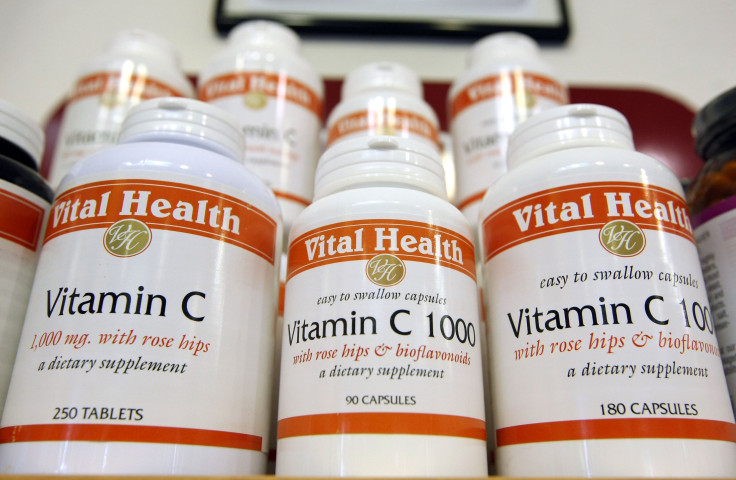Vitamin C Benefits Obese People's Blood Circulation As Much As Walking, But It Still Shouldn't Replace Exercise

Exercise is vital for a healthy life. But a dose of vitamin C might keep a person’s blood flowing just as well as a walk, leading researchers from the University of Colorado, Boulder, to call it “an effective lifestyle strategy” for overweight and obese people.
Their study, presented at the American Physiological Society’s 14th International Conference on Endothelin, involved 35 overweight or obese adults who were asked to either exercise or take a vitamin C supplement on a daily basis. For three months, researchers kept track of how exercise and vitamin C affected participants’ protein endothelin-1, which is found in the lining of the blood vessel walls and is responsible for their constriction.
Constricting blood vessels are particularly dangerous for overweight or obese people because they cause blood pressure throughout the body to rise, increasing risk of heart disease, stroke, kidney failure, and other health problems, according to the National Heart, Lung, and Blood Institute. Blood flows to organs and extremities at a slower pace when it has to travel through narrow, constricted blood vessels.
It turned out that one daily dose of 500 milligrams (mg) of time-release vitamin C was able to reduce endothelin-1 activity just as much as walking exercise. The participants’ vessel function was measured by looking at forearm blood flow before and after each vitamin C dose and exercise intervention. Exercise is important, however, as the research team pointed out, it can be difficult for obese people to do every day because of their weight.
While vitamin C supplementation may be a good addition to an obese person’s weight-loss routine (to help lower blood pressure), it is not a replacement for exercise, the researchers said. According to the Harvard School of Public Health, physical activity is vital to an obese person’s health. Keeping active not only helps lower risk of constricting blood vessels and hypertension, but also heart disease, diabetes, stroke, osteoporosis, and certain cancers. It can also reduce stress, boosting a person’s mood.
A decline in physical activity across the globe is one of the main reasons for the obesity epidemic; it’s also one of the 10 leading risk factors for death, according to the World Health Organization. Yet, despite its benefits, only about one in three people engage in enough physical activity each week, according to the American Heart Association. Adults between the ages of 18 and 64 should complete at least 150 minutes of moderate- to vigorous-intensity physical activity throughout the week, which includes walking, cycling, or participating in sports.
Source: Dow C and Pauling L. American Physiological Society’s 14 th International Conference on Endothelin. 2015.



























